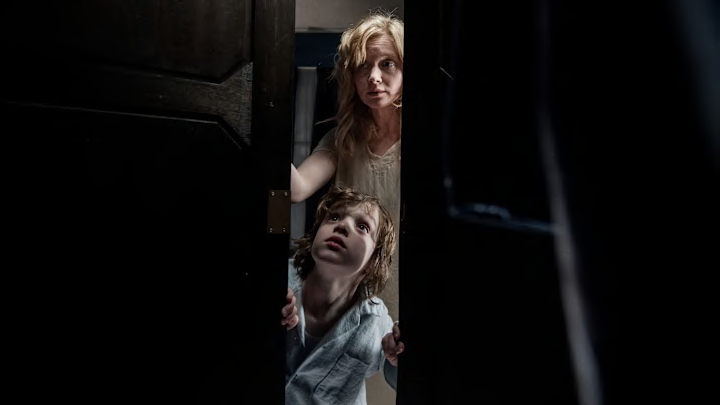The Babadook is quite not like your usual horror movie. At first, it might feel like just another story about a creepy monster in the closet. But as the story unfolds, it becomes clear that this film is working on a whole different level. It’s less about jump scares and more about what happens when someone tries to keep pushing their pain aside.
The film follows Amelia, a widowed mother, who is trying to raise her troubled son, Samuel. They’re both struggling - Amelia with grief and exhaustion, and Samuel with fear and behavior that others find hard to deal with. And when they discover a mysterious children’s book called "Mister Babadook," their lives start to spiral into something darker and scarier. But there's a deep meaning The Babadook his hiding behind its scares.
Grief, trauma, and the monster within
Amelia lost her husband in a car crash on the same day Samuel was born. From the start, she never had time to process that loss. Instead, she buried her feelings, trying to carry on with life and pretend things were fine. But pain like that doesn’t just go away, right?
The Babadook shows up right when Amelia is at her lowest. She’s sleep-deprived, overwhelmed, and lonely, and the book they find seems to know her deepest fears. The monster that starts haunting her is like her grief, finally demanding to be noticed. The more she ignores it, the stronger it gets, and that’s exactly how grief can feel - quiet at first, but impossible to ignore forever.
It’s also interesting how the movie shows that The Babadook never really leaves. At the end, Amelia locks it in the basement and feeds it. That scene feels strange, but it says a lot. She’s not running from her grief anymore. Instead, she’s facing it, living with it, and learning to manage it. It’s a powerful message: Some feelings don’t just disappear, but that doesn’t mean they have to control you.
Mental health, motherhood, and isolation
The whole movie screams about mental health, but in a silent way. Amelia clearly struggles with depression, though the movie never says it outright. Her days blur together, she avoids people, and she lashes out when things become too much., and The Babadook feels like the part of her mind she’s scared to deal with - the anger, guilt, and sadness that’s been building up for years.
Motherhood in the movie is also shown in a raw, honest way. Amelia loves Samuel, but at times she resents him too. It’s not because he’s bad, but because she’s tired, broken, and alone. The film doesn’t shy away from showing the darker side of parenting, especially when support is missing. That’s another reason why The Babadook feels real.
The film’s director, Jennifer Kent, once said that she wanted to make a story about grief in a way that people don’t usually talk about. And she really succeeded. The Babadook isn’t scary just because it looks creepy or pops out in the dark. It’s scary because it shows how dangerous it is when people are left alone with their pain.
